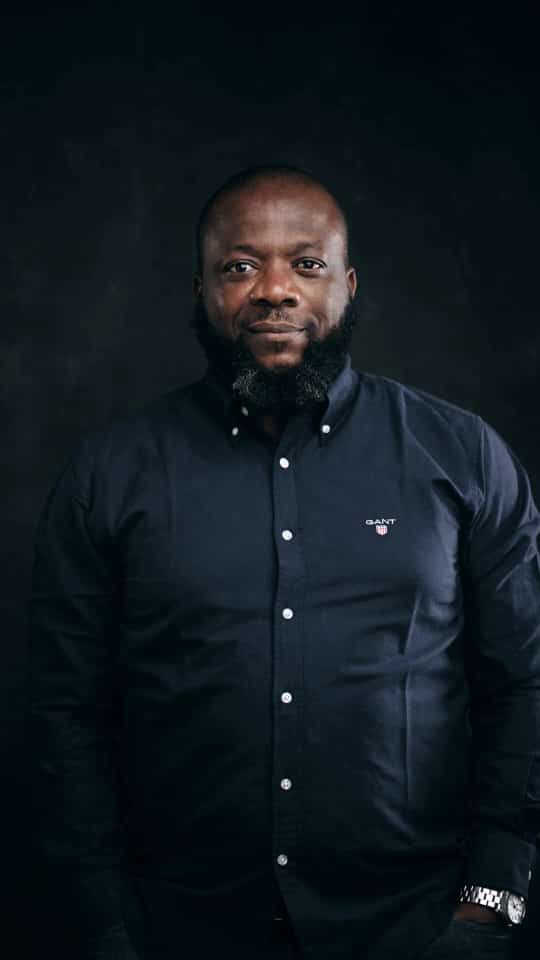Creative economy valued at $250b globally – Udoh

Marketing director, Marketing Edge Publication, Anietie Udoh has said the value of the creative economy is valued at over $250 billion globally.
According to Udoh, the creative global economy, is valued at over $250 billion in global markets size while revealing that the booming industry of skit comedian, food vloggers on TikTok, comedians on Instagram and tech reviewers on YouTube, has impacted the size and value of the creative economy.
He hinted that a new class of digital entrepreneurs are building thriving brand and loyal followings.
Udoh made this known while briefing journalist at a media parley event in Lagos where he stated that with the evolving landscape of digital marketing, content creators are no longer just the “faces” of brand campaigns, they are fast becoming the architects of brand narratives.
This he boldly expressed had impacted on digital strategist and voice in Nigeria’s burgeoning creator economy, to resonating with a growing number of marketing professionals across the country.
He further explained that The most effective creator marketing is more than just endorsements, while pointing emphatically, to the quiet revolution happening in Nigeria’s advertising and branding space.
He said “Gone are the days when marketing success was measured by how many celebrities a brand could parade. Today, the spotlight is shifting to content creators, and ordinary Nigerians with loyal digital communities who wield extraordinary influence.
From the buzzing streets of Lagos to the quiet corners of Uyo, creators are redefining how brands connect with the market.
In Nigeria’s past media cycles, it wasn’t uncommon to see brands jostle for the endorsement of A-list celebrities.
These big names would appear in commercials, billboards, and radio jingles, often detached from the grassroots audience brands were trying to reach.
“Smart marketers now turn to creators who connect with real people, not just celebrities who pose in front of a camera,” says Udoh.
According to him, the modern Nigerian consumer, particularly the youth, has grown weary of the old-school celebrity endorsement formula. They now trust voices that speak their language—literally and figuratively.
“Gen Z and millennials are more likely to buy something if their favorite influencer talks about it, not because they’re famous, but because they feel real,” Udoh explains.
A key point of failure in traditional influencer campaigns is how brands treat creators, as contractors rather than collaborators. “They give a script, a flyer, and say, ‘post this on your page,’” Udoh laments. “But that’s not how it works anymore.”
He advocates for a partnership approach, where content creators are involved from the ideation stage of a campaign. It’s not about using a creator’s platform as a digital billboard; it’s about letting them bring their unique voice and storytelling abilities into the fold.
According to Udoh, some of the most impactful campaigns in Nigeria have come from brands that handed the creative reins to creators, those who understand their audiences better than most marketing departments ever could.
A common misconception in the influencer marketing space is that follower count equals influence. But Udoh is quick to debunk that.
“We’ve seen student influencers in Nigeria drive real impact because their content connects,” he says. “Some have just 5,000 followers but get more engagement than those with 100,000. It’s not about numbers, it’s about “real influence.”
This shift is leading brands to reconsider their strategies. Micro-influencers and nano-creators are now in high demand, not for their reach, but for their relevance.
Udoh paints a vivid picture of how creative collaboration can elevate a campaign. Imagine a tech brand launching a new smartphone in Nigeria.
Instead of handing the phone to a celebrity for a typical unboxing video, what if the brand partnered with a tech creator who explains gadgets in Pidgin English, or better yet, uses humor to illustrate how the battery lasts through a Lagos-to-Benin road trip?
“That kind of content feels real—and it works,” he says.
The goal is not just visibility, but “connection”, an emotional and cultural resonance that cannot be manufactured in a boardroom.
Another visible trend, Udoh notes, is that creators are no longer just amplifying brand messages, they are “shaping” them.
From episodic YouTube series to branded podcast segments, Nigerian brands are exploring long-term partnerships with creators, far beyond the one-off Instagram post. Some brands are even co-developing products with influencers, leveraging their understanding of niche markets.
“Think of creators like Macaroni, Taaooma, or Korty EO. They’re not just influencers, they’re storytellers. When they work with a brand, they create content people actually want to watch, not skip,” Udoh emphasizes.
This content-first approach is steering brands away from traditional ad models and into the realm of “entertainment marketing”.
Udoh’s message to Nigerian brands and marketing managers is direct: “Treat creators with respect. Don’t just hand them a banner and say, ‘go post.’ Involve them from the start.”
As digital attention spans shrink and media becomes more democratized, the lines between influencer and creative director continue to blur. Nigerian creators are not just selling products, they’re building cultures, shaping opinions, and defining trends.
“In today’s world, creators are your new creative department,” Udoh declares. It’s a wake-up call for marketers still stuck in outdated models. The creator economy isn’t a passing phase, it’s the new frontier of communication, and it’s thriving right here in Nigeria.
As brands face increasing pressure to remain relevant in a cluttered digital space, one truth is becoming more evident: creators who understand their communities are the bridge between brands and the people they hope to reach.
The era of slapping a product into a post and calling it a campaign is fading. In its place is a more collaborative, creator-first marketing model that is not only effective but authentic.
The post Creative economy valued at $250b globally – Udoh appeared first on Vanguard News.

 yarkarkara
yarkarkara 





